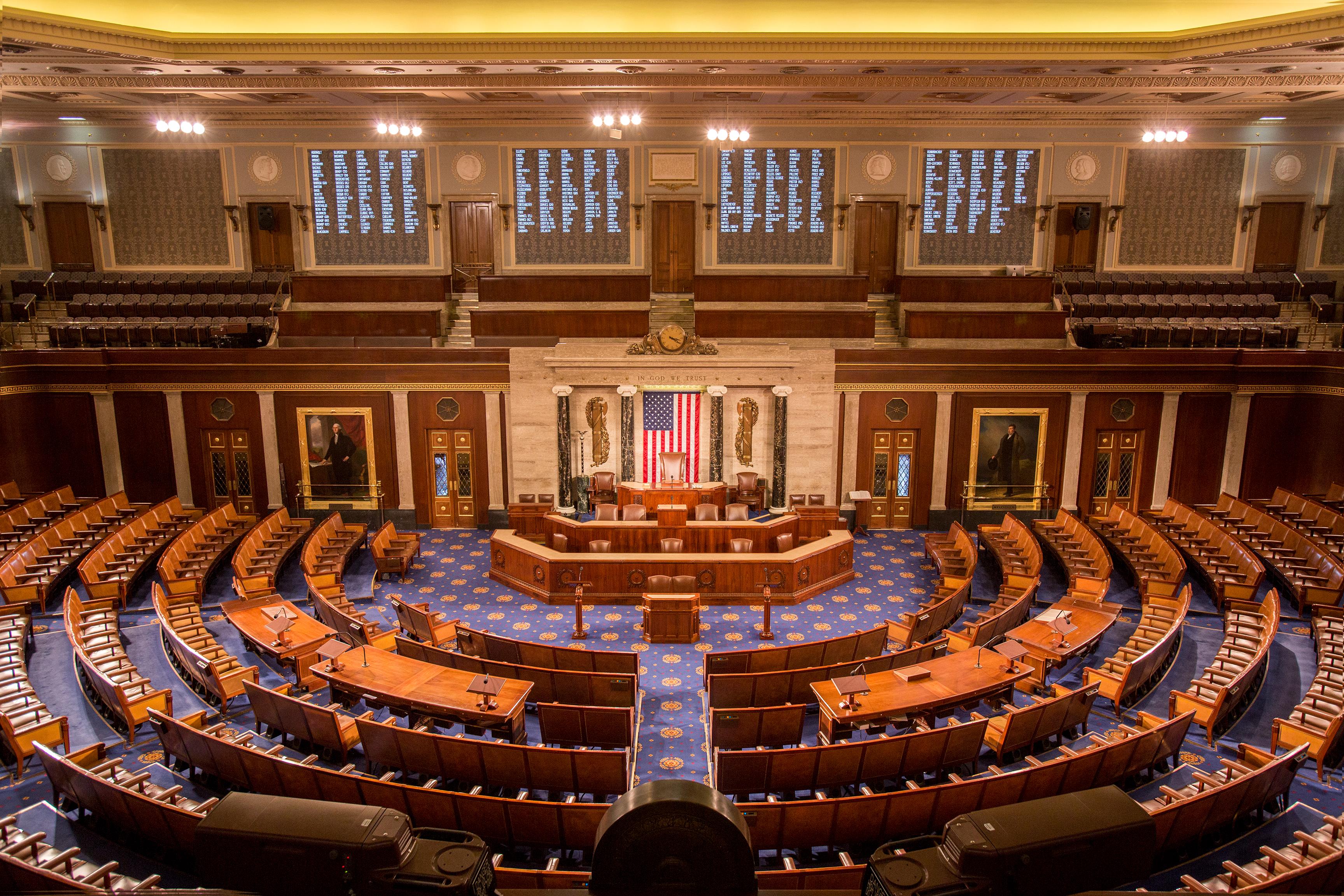House Moves Closer to Section 702 Reauthorization Vote
The absence of a warrant requirement in the new bill will stoke lingering divisions.

Published by The Lawfare Institute
in Cooperation With

On Monday, Rep. Laurel Lee (R-Fla.) introduced a new bill to reauthorize Section 702 of the Foreign Intelligence Surveillance Act (FISA) following an aborted showdown late last year between competing proposals from the House Intelligence and House Judiciary committees. As introduced, the Reforming Intelligence and Securing America Act (H.R. 7320) more closely resembles the House Intelligence Committee’s targeted approach to reform than the House Judiciary Committee’s sweeping limitations. The absence of a warrant requirement for Section 702-related U.S. persons queries all but guarantees fierce opposition from far-right lawmakers, who are wary of a “deep state,” and civil libertarians across the ideological spectrum as the bill moves toward a final vote in the House.
H.R. 7320 marks the first public movement on Section 702 issues since Congress pushed the reauthorization deadline to April 2024. Tensions came to a head in early December, when House Speaker Mike Johnson considered using a rare procedure called Queen of the Hill to pit the bills from House Intel and House Judiciary against each other on the floor. Divisions within the conference led Johnson to abandon the plan at the last minute. Instead, Congress tucked an extension of Section 702 into last year’s National Defense Authorization Act, and negotiations moved behind closed doors. H.R. 7320 may be the culmination of such efforts.
A backdrop of controversy around FISA informs the struggle to reach consensus. FISA Section 702 enables the intelligence community to collect electronic communications of non-U.S. person targets who are located overseas. It is widely accepted as a valuable intelligence tool, even among the government watchdogs who call for reforming it. However, a historic pattern of improper FBI searches has aroused intense debate over whether the government should be required to obtain a warrant before querying Section 702 holdings for U.S. person information. Republicans have also seized on significant errors in the FBI’s handling in 2016 of FISA applications for a Trump campaign associate (Carter Page) to allege the government has broadly weaponized FISA. The FISA authorities at issue in the 2016 controversy are separate from FISA Section 702, but the issues have become politically linked and complicate Section 702’s reauthorization.
Compromise has long proved elusive on this issue. The warrant requirement helps outline a broader debate between reformers and revampers. Before the failed vote in December, legislators in both chambers had already embarked on fundamentally different approaches to reauthorizing Section 702. The House and Senate Intelligence committees favored codifying reforms to address the FBI’s history of compliance issues, while the House Judiciary Committee and a coalition led by Sen. Ron Wyden (D-Ore.) have attempted to drastically curtail Section 702 and other surveillance authorities. The Biden administration and national security experts view a warrant requirement as a death knell to Section 702. The privacy community, by contrast, perceives a warrant requirement as essential protection against intrusive government surveillance.
H.R. 7320 does not contain a warrant requirement for U.S. person queries. H.R. 7320 would require FBI personnel to “obtain prior approval” for U.S. person queries from a supervisor or an attorney, mandate senior FBI approval of certain “sensitive” queries, and revoke the FBI’s ability to conduct queries solely for the purpose of retrieving evidence of a crime. These reforms are consistent with those contained in the House Intelligence Committee’s bill.
H.R. 7320 enhances some congressional oversight over querying. The bill would require the FBI to notify congressional leadership of queries related to members of Congress. It would also require the FBI to obtain consent of a congressperson prior to running queries to supplement a briefing on the defense against a counterintelligence threat to that member.
H.R. 7320 would reform the Foreign Intelligence Surveillance Court (FISC) and the application process for FISA Title I and Title III (“Traditional FISA”) orders. H.R. 7320’s FISC changes include expanding the role of amicus curiae in FISC proceedings. Separately, the bill requires sworn statements to accompany factual assertions in applications for Traditional FISA court orders and limits the government’s ability to use press reporting or information from political organizations in those applications. At least several of these provisions resemble language found in the House Intelligence Committee’s bill, which targeted procedural flaws from the FBI’s mishandling of the Carter Page FISA application. The House Judiciary Committee also addressed these issues in its bill, although its FISC reforms were more expansive than those put forward in H.R. 7320.
H.R. 7320 would stiffen penalties associated with mishandling FISA information. It institutes criminal penalties associated with unauthorized disclosures and strengthens the associated civil penalties. The bill also requires the FBI director to promulgate accountability standards for compliance with querying protocols that include “zero tolerance for willful misconduct,” “[e]scalating consequences for unintentional noncompliance,” and “[c]onsequences for supervisors who oversee users that engage in noncompliant queries.”
In other areas, H.R. 7320 codifies executive branch policy reforms. The bill requires that FBI personnel “affirmatively elect” to search Section 702 holdings when conducting U.S. person queries. The bill also requires that FBI personnel provide a written statement of the factual basis for believing searches meet the query standard. These provisions respond to historic sources of FBI compliance violations. Previously, FBI officials had to opt out of searching against FISA holdings, raising the incidence of erroneous queries. Another issue had been that FBI systems allowed personnel to choose from a preset menu of categorical justifications.
H.R. 7320 dropped some elements unique to either House Intelligence or House Judiciary. H.R. 7320 did not retain House Intelligence’s modification of the definition of an electronic communication service provider. Privacy groups previously assailed that provision, which some experts believed “would vastly widen the scope of businesses, entities, and their affiliates who are eligible to be compelled to assist 702 surveillance.” Additionally, H.R. 7320 does not appear to expand the definition of foreign intelligence to include counternarcotics, which was a priority of the House Intelligence Committee. The new bill also does not take up House Judiciary’s prohibitions against law enforcement and intelligence purchases of data without a court order.
H.R. 7320’s absence of a warrant requirement and other deviations from the House Judiciary Committee bill have already attracted significant criticism from some hardliners in the House Republican Caucus. The House Rules Committee will meet today to consider the terms and conditions of debate on H.R. 7320. This action could set up the bill for floor consideration later in the week.




